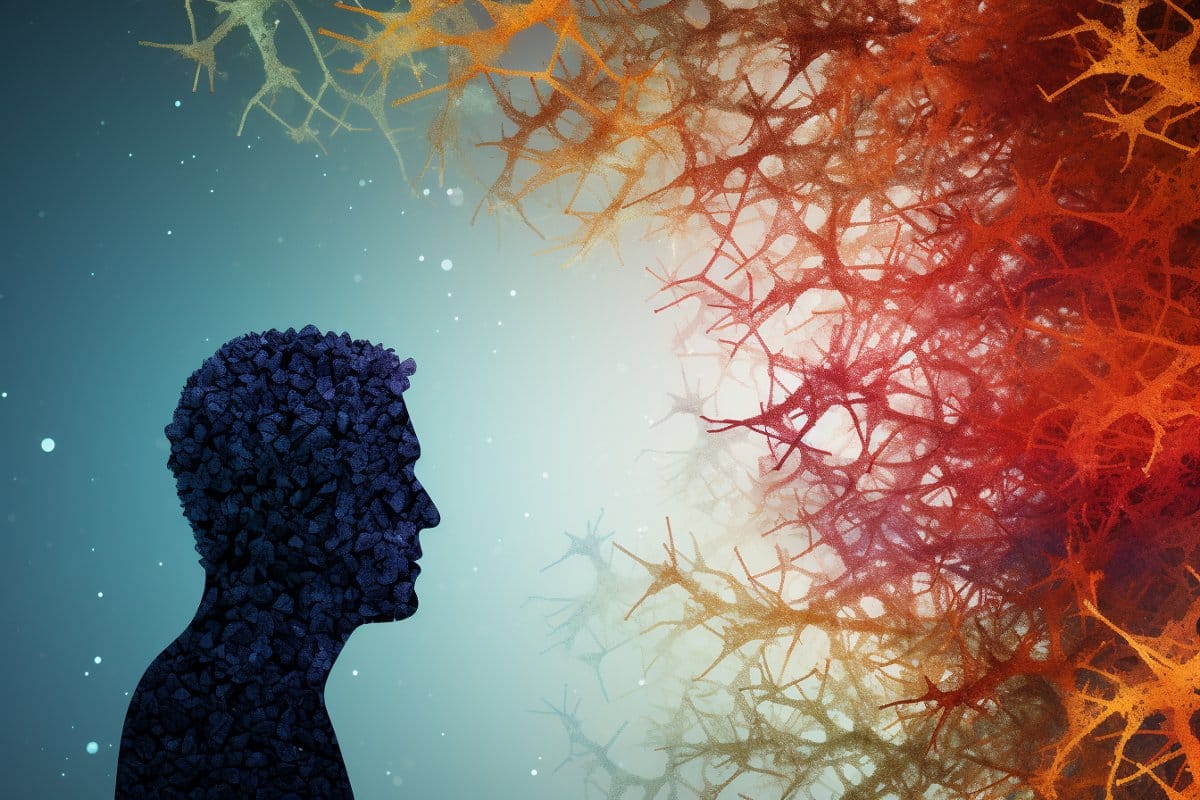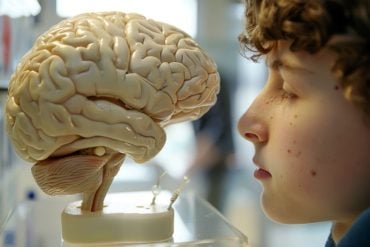Summary: A new study confirmed a link between gut microbiota and Alzheimer’s disease.
The research demonstrated that Alzheimer’s symptoms could be transferred to young, healthy organisms through gut microbiota transplants. Alzheimer’s patients exhibited a heightened presence of inflammation-causing bacteria, correlating with their cognitive state.
This discovery emphasizes the gut microbiome as a pivotal area of investigation for Alzheimer’s.
Key Facts:
- Memory impairments in Alzheimer’s patients can be transferred to young animals via gut microbiota transplants.
- Increased inflammation-promoting bacteria in the gut is directly connected to cognitive decline in Alzheimer’s patients.
- The research suggests that early intervention by studying the role of gut microbes during the initial stages of dementia could lead to new therapeutic approaches.
Source: UCC
Researchers have discovered the link between the gut microbiota and Alzheimer’s disease.
For the first time, researchers have found that Alzheimer’s symptoms can be transferred to a healthy young organism via the gut microbiota, confirming its role in the disease.
The research was led by Professor Yvonne Nolan, APC Microbiome Ireland, a world leading SFI funded research centre based at University College Cork (UCC), and the Department of Anatomy and Neuroscience, UCC, with Professor Sandrine Thuret at King’s College London and Dr Annamaria Cattaneo IRCCS Fatebenefratelli, Italy.
The study supports the emergence of the gut microbiome as a key target for investigation in Alzheimer’s disease due to its particular susceptibility to lifestyle and environmental influences.
Published in Brain, the study shows that that the memory impairments in people with Alzheimer’s could be transferred to young animals through transplant of gut microbiota.
Alzheimer’s patients had a higher abundance of inflammation-promoting bacteria in faecal samples, and these changes were directly associated with their cognitive status.
Professor Yvonne Nolan said: “The memory tests we investigated rely on the growth of new nerve cells in the hippocampus region of the brain. We saw that animals with gut bacteria from people with Alzheimer’s produced fewer new nerve cells and had impaired memory.”
“People with Alzheimer’s are typically diagnosed at or after the onset of cognitive symptoms, which may be too late, at least for current therapeutic approaches. Understanding the role of gut microbes during prodromal – or early stage- dementia, before the potential onset of symptoms may open avenues for new therapy development, or even individualised intervention,” said Professor Nolan.
Alzheimer’s is the most common cause of dementia, a general term for memory loss and other cognitive abilities serious enough to interfere with daily life. As our population ages, one in three people born today are likely to develop Alzheimer’s.
Funded by Science Foundation Ireland, scientists in UCC are working to develop strategies to promote healthy brain ageing and advance treatments for Alzheimer’s by exploring how the gut microbiota respond to lifestyle influences like diet and exercise.
Professor Sandrine Thuret, Professor of Neuroscience at King’s College London and one of the study’s senior authors said, “Alzheimer’s is an insidious condition that there is yet no effective treatment for. This study represents an important step forward in our understanding of the disease, confirming that the make-up of our gut microbiota has a causal role in the development of the disease.
“This collaborative research has laid the groundwork for future research into this area, and my hope is that it will lead to potential advances in therapeutic interventions.”
The research was conducted by Dr Stefanie Grabrucker, a postdoctoral researcher working with Professor Nolan, in partnership with postdoctoral colleagues Dr Edina Silajdzic at King’s College London and Dr Moira Marizzoni, IRCCS Fatebenefratelli, Italy. UCC collaborators were Professor Cora O’Neill, Dr Olivia O’Leary, Dr Sarah Nicolas, Dr Jane English, Mr Sebastian Dohm-Hansen and Dr Aonghus Lavelle.
Professor. John F. Cryan, UCC Vice President for Research and Innovation, who was also involved in this research said: “I’m delighted to be involved in this exciting study that further enhances our understanding of the significant role played by the gut microbiome in brain related diseases, such as Alzheimer’s, and recognises UCC and APC Microbiome Ireland as leading institutions in microbiome and brain health research.
“This research aligns with our UCC Futures Framework and the strategic plan for the University in the areas of Food, Microbiome and Health and the soon to be launched Future Ageing and Brain Science.”
About this Alzheimer’s disease research news
Author: Kate O Sullivan
Source: UCC
Contact: Kate O Sullivan – UCC
Image: The image is credited to Neuroscience News
Original Research: Open access.
“Microbiota from Alzheimer’s patients induce deficits in cognition and hippocampal neurogenesis” by Yvonne Nolan et al. Brain
Abstract
Microbiota from Alzheimer’s patients induce deficits in cognition and hippocampal neurogenesis
Alzheimer’s disease is a complex neurodegenerative disorder leading to a decline in cognitive function and mental health. Recent research has positioned the gut microbiota as an important susceptibility factor in Alzheimer’s disease by showing specific alterations in the gut microbiome composition of Alzheimer’s patients and in rodent models. However, it is unknown whether gut microbiota alterations are causal in the manifestation of Alzheimer’s symptoms.
To understand the involvement of Alzheimer’s patient gut microbiota in host physiology and behaviour, we transplanted faecal microbiota from Alzheimer’s patients and age-matched healthy controls into microbiota-depleted young adult rats.
We found impairments in behaviours reliant on adult hippocampal neurogenesis, an essential process for certain memory functions and mood, resulting from Alzheimer’s patient transplants. Notably, the severity of impairments correlated with clinical cognitive scores in donor patients. Discrete changes in the rat caecal and hippocampal metabolome were also evident.
As hippocampal neurogenesis cannot be measured in living humans but is modulated by the circulatory systemic environment, we assessed the impact of the Alzheimer’s systemic environment on proxy neurogenesis readouts. Serum from Alzheimer’s patients decreased neurogenesis in human cells in vitro and were associated with cognitive scores and key microbial genera.
Our findings reveal for the first time, that Alzheimer’s symptoms can be transferred to a healthy young organism via the gut microbiota, confirming a causal role of gut microbiota in Alzheimer’s disease, and highlight hippocampal neurogenesis as a converging central cellular process regulating systemic circulatory and gut-mediated factors in Alzheimer’s.








